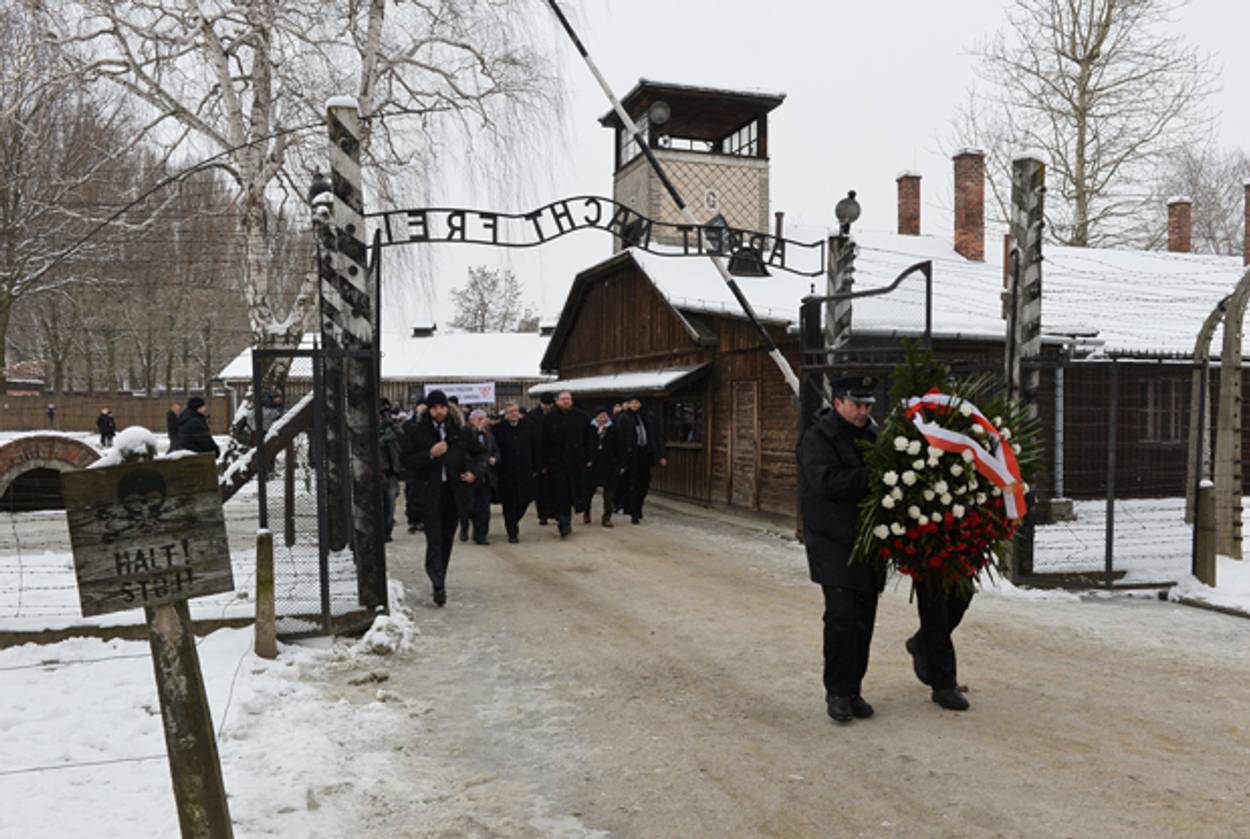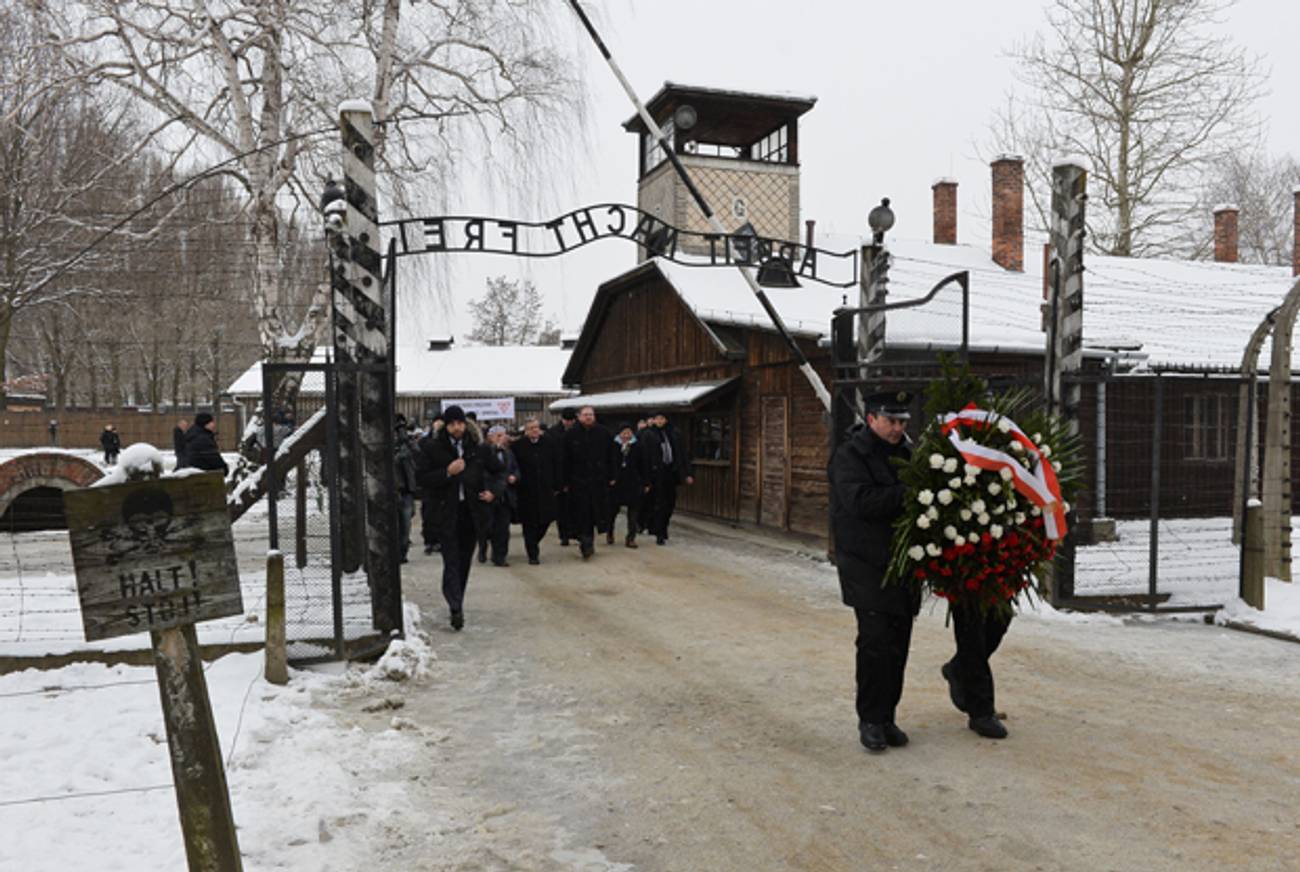My Visit to Auschwitz: Remembering, Educating, Acting
Randi Weingarten reflects on this week’s 70th anniversary commemoration




Our journey to Auschwitz was long. The fog and the wind were so bad that our flight from Tel Aviv to Krakow was diverted to Warsaw. We drove all night to get there and arrived at Auschwitz exhausted. The trip wasn’t easy, and we barely made it in time to visit the museum before the commemoration of the 70th anniversary of the concentration camp’s liberation. Then again, it should never be easy to come to this place. And nothing—not talking to survivors or reading extensively about it or teaching it or visiting other museums about it—prepared me for this visit.
For 70 years, it’s been said, “Never forget.” Never forget the marginalization, the stereotyping, the isolation and the dehumanization of Jews, Gypsies and other vulnerable minorities. Never forget that moment it became acceptable to consider them unworthy of life. Never forget the genocide. Never forget their lives, or the systematic attempt to eliminate an entire people.
Yet, for 70 years, time and again, society has forgotten. We’ve forgotten that the seeds for degradation, for genocide, are planted in many ways. We’ve forgotten the lessons we’ve learned, as evidenced by the tragedies in Darfur, in Rwanda, in Bosnia and now in Nigeria. It’s been nearly a year since Boko Haram first snatched 300 Nigerian schoolgirls in the dark of the night. And that reign of terror continues today. After the initial outcry, their kidnapping has been met with silence by the world. Silence.
The silence is deafening at Auschwitz. Visitors—in the face of the pictures and artifacts in buildings and courtyards that were places of intimidation, terror and murder—speak in hushed tones. But we cannot afford to be silent. The call to “never forget” must be passed down from generation to generation. Remembering means educating. Remembering means speaking out, not being a bystander.
When I was a high school history teacher, of all the lessons I taught, those on the Holocaust were the toughest. I wanted my students to understand the depth of the crimes perpetrated by the Nazis and the consequences of global silence in the face of such evil. I wanted them to be able to relate to such horror. And I wanted them to gain a sense of responsibility, to leave my class emboldened to help their generation and future generations combat hate and prejudice—the seeds of this and every other genocide.
Invariably, there were a few students in class who got it at a much more personal level than the others. The student who was bullied for being gay. The student who was marginalized because she was Muslim or he was Jewish. On some level, these students could relate.
Surely, there is no moral or actual equivalent to the Holocaust found in school halls or the playground. Yet, everyday incidents—bullying, discrimination, prejudice, isolation—are part of the reality for far too many of our children. And, as we learned from the Holocaust, these small indignities can grow into the greatest of tragedies. Somehow, students who feel like they are on the outside looking in understand that.
It’s not enough for the vulnerable to understand the Holocaust; our responsibility is to teach all our children to comprehend it and its consequences. And to teach more children about the Holocaust, we need to train more people to teach about it. The Holocaust survivors who are left—those who were children during the Holocaust and are here in Auschwitz this week—won’t be with us much longer. When I was growing up in New York, my extended family, my friends and my parents’ friends recounted their family’s experiences with the Holocaust. Today, those with a connection to the Holocaust are fewer and farther between. That’s why we must train a new generation of teachers to teach the history and lessons of the Holocaust.
We have a collective obligation to help our children understand the warning signs of genocide, to help them understand where societies have gone wrong in the past. We have an opportunity to establish empathy, to help kids realize, “Wow. That could have been me.” And we have a responsibility to show them ways they can intervene—to share stories of the resistance movement, of those who helped others—so they won’t feel powerless against terror.
Kids face choices every day, and teaching the Holocaust should include lessons on making good, sometimes difficult, choices. Do they speak up when another student is being bullied? Do they call out a friend who is using derogatory language? Bullying is a useful example to discuss the concepts of perpetrators, resisters, and bystanders. In life, there will be perpetrators—the bullies. There will be resisters—those who stand up to the bullies. And there will be bystanders—those who do nothing out of fear or intimidation or embarrassment. As educators, we can transform those who might stand by into those determined to stand up.
History tells us that without voices calling out marginalization and debunking stereotypes, extremists prevail. We cannot afford to be silent. We must pass down the lessons and the history of the Holocaust to our children and our children’s children. Remembering means speaking out, not being a bystander. Remembering means educating. Remembering means all lives matter. That’s the lesson I take from my visit to Auschwitz—an experience I’ll never forget.
Randi Weingarten is president of the 1.6 million-member American Federation of Teachers. Education International sponsored the Conference on Holocaust Remembrance and asked Weingarten—as a former high school social studies teacher, teachers’ union official and EI board member—to speak about the importance of educating today’s youth about the lessons of the Holocaust.
Randi Weingarten is president of the American Federation of Teachers.